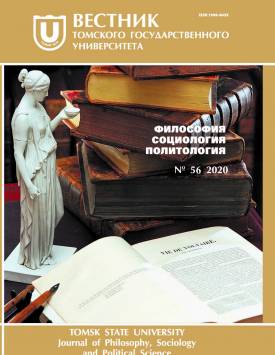The Psychopathology of Ordinary Communication in Terms of a Hierarchical Approach to Solving the Paradoxes Problem
The origin of human language is one of the most difficult issues of human sciences. The uniqueness of the language puts the natural-science worldview, in which the language appears to be an unprecedented evolutionary phenomenon, in a vulnerable position. At the moment, there is no answer to the question of which of the functions of the language - communicative or cognitive - played a key role in the evolution of human thinking? The main difficulty is that human language, the language of everyday communication, is used both to describe oneself and to describe the world of which one is a part. In terms of the logical doctrine defended by Bertrand Russell and Alfred Tarski, paradoxes are inevitable in the language used to describe oneself. The relativization of objects of cognition fixed in a semantically closed language makes any judgment about such a system of meanings unlawful. Thus, purely logical problems extend to the fundamental sections of philosophy, and the question of the origin of language is transformed into the question of the boundaries of reality and cognition. This article discusses the practical applicability of abstract knowledge in ordinary language at the intersection of epistemology, the foundations of mathematics, and psychopathology. The main aim of the work is to answer the question of how much the ideals of a pure theory meet the demands of everyday life, and whether they meet them at all. The contextualism of the later Ludwig Wittgenstein leads to the question of the abstract nature of metacommunicative statements. The logico-epistemological foundations of Gregory Bateson's theory of communication and psychopathology are explicated. The paradox of a negative self-referential meta-statement and ways to overcome it are analyzed. The impossibility of the principles of a hierarchical approach in the application to the tasks of ordinary communication is demonstrated. The conclusion is made about the inapplicability of the hierarchical model of metalanguages to the structuring of ordinary language and thinking.
Keywords
языковые игры, контекст, коммуникация, метаязык, double-bind, парадокс, Витгенштейн, Бейтсон, Рассел, language-game, context, communication, metalanguage, double-bind, paradox, Wittgenstein, Bateson, RussellAuthors
| Name | Organization | |
| Antukh Gennady G. | Tomsk Scientific Center, Siberian Branch of the Russian Academy of Sciences | g.antukh@yandex.ru |
References

The Psychopathology of Ordinary Communication in Terms of a Hierarchical Approach to Solving the Paradoxes Problem | Tomsk State University Journal of Philosophy, Sociology and Political Science. 2020. № 56. DOI: 10.17223/1998863X/56/2
